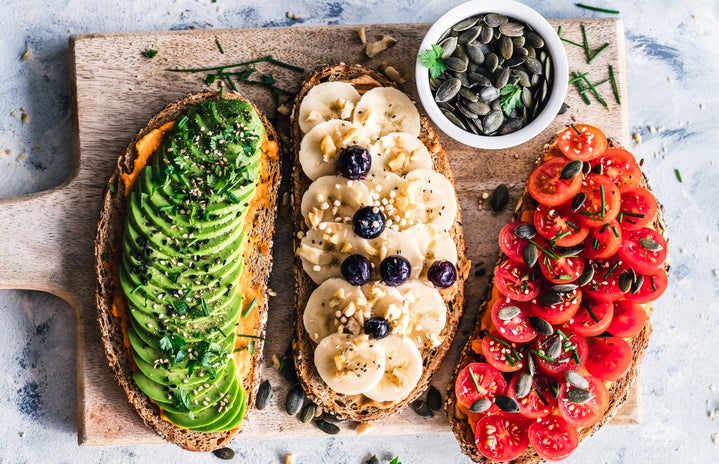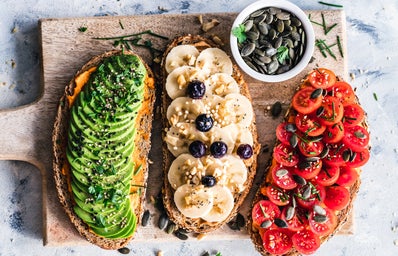“No I can’t eat that, it’s bad for me. I don’t eat that.”
“How many calories do you think my drink was?”
“I ate too much yesterday so I decided to not eat as much today.”
These are all phrases we’ve heard possibly from our friends or we overhear from a stranger’s conversation; and while a lot of these comments have been normalized, it hints towards a much bigger issue: an unhealthy relationship with food.
Throughout high school and the beginning of my freshman year, I had a difficult relationship with food. I would skip meals regularly, worrying about my calorie intake or my weight. For a while, I thought this relationship was normal until I could no longer do things I enjoy. It became more difficult to wake up in the morning or just stand up. This relationship with food negatively impacted my school work, my relationship with friends, and my workout goals.
In order to have a healthy lifestyle, it’s important to create a healthy relationship with food. A good relationship with food doesn’t necessarily mean that you’re choosing a diet or you’re choosing to eat specific foods; it means that you are actively choosing foods that make you feel better and happy.
Eating food is a pleasure for people, we don’t eat it just for survival like animals do. So once you give yourself permission to eat the foods you enjoy, you are able to develop a healthier relationship with food. It’s important to listen to your body and respect it; don’t just listen to a craving and decide to go to sleep, but act on that craving.
A lot of the time, we see ourselves focus so much on calories, or our weight. Calories shouldn’t be the focus of your food, how you feel after eating that food should be. It can sometimes feel impossible to not focus on the caloric intake of our food, especially when we have been raised in a society that values diet culture.
One of the first steps to creating a healthy relationship with food is to give yourself permission to eat: just because you ate a lot earlier in the day doesn’t mean you need to starve yourself later. When you give yourself this permission to eat whenever you want and how much you want, it becomes easier to eat when you’re hungry. Listen to your body’s hunger signals and eat when you think you’re hungry. For the longest time I struggled with this, as many do, and I couldn’t feel these signals. If you can’t, try to set times for you to eat. If it’s dinner time and you’re not that hungry, but you haven’t eaten in a while, try to eat something because your body needs it.
Try to let all foods into your diet, unless you have some dietary restrictions. If you are able to eat something, and you want to eat it, then do it. When you tell yourself that you can’t have something, you want to crave it more. And when you allow yourself to have any foods, you are able to control your craving for foods you may sometimes deem “unhealthy.”
Also, your relationship with food is your relationship with food. It’s not your friends’ relationship with food, or your families. You should pay no mind to other people’s commentary on your food or their relationship with food. You don’t need a reason to choose your foods, you can just choose to eat what you think will feel best for you in the moment.
While it’s difficult to follow these steps, these are small steps you can take to create a healthier relationship with food. Sometimes these are steps you need to take with professional help, or with the help of your loved ones. While these steps can be scary and incredibly difficult, it will be helpful in the long run.



